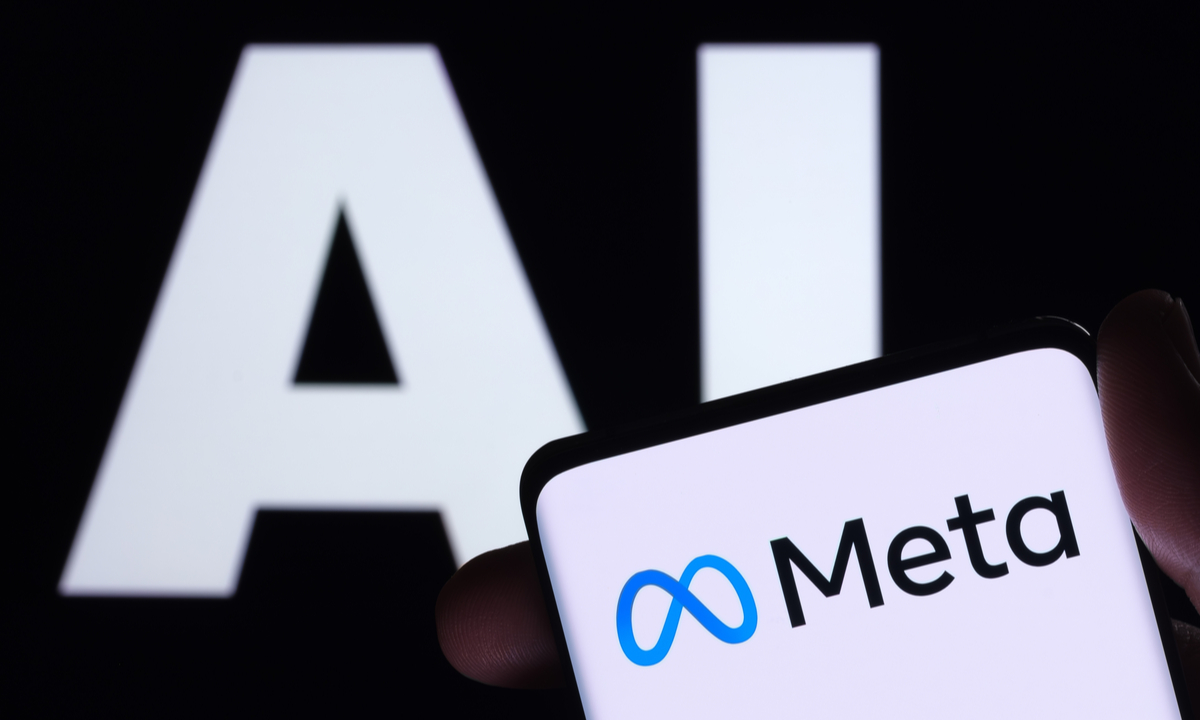## Meta’s Behemoth AI Hits a Snag: What Does This Mean for Gamers?
Remember that time you wished your favorite game could learn your playstyle, predict your moves, and even adapt to your strategies? Meta thought so too, and they were building a colossal AI called “Behemoth” to make that dream a reality. But hold on to your controllers, gamers! Meta just pulled the plug on Behemoth’s release, citing the need for more development time.

Open-Source Advantage

Meta’s decision to delay the launch of its powerful “Behemoth” AI model doesn’t necessarily diminish the potential impact of its open-source AI models like Llama 4 on the gaming industry. In fact, the availability of these models presents a unique opportunity for smaller companies and independent developers to leverage cutting-edge AI technology without the hefty costs associated with proprietary solutions. Llama 4, with its impressive 400 billion parameters and a 1 million token context window, allows for complex and nuanced interactions within games, opening doors to innovative gameplay mechanics.
Customization and Innovation
One of the key advantages of open-source AI models is the ability to customize them to specific needs. Smaller studios can fine-tune Llama 4 to create unique in-game AI characters with distinct personalities, behaviors, and dialogue patterns. This level of customization can lead to more immersive and engaging gaming experiences that stand out from the crowd.
For example, imagine a role-playing game where the non-player characters (NPCs) are powered by Llama 4. Each NPC could have its own individual backstory, motivations, and reactions to player actions, creating a dynamic and unpredictable world. This level of personalization is difficult, if not impossible, to achieve with traditional AI scripting methods.
Deployment Dilemma
While the open-source nature of Llama 4 offers significant benefits, its implementation can still pose challenges for smaller developers. Meta, primarily focused on its social media platforms, doesn’t offer dedicated deployment services for these models. This means that developers need to invest in the infrastructure and expertise to integrate Llama 4 into their games, which can be a significant barrier to entry.
Gamestanza recognizes this challenge and encourages collaborative efforts within the gaming community. Sharing best practices, developing open-source tools, and fostering knowledge exchange can help overcome these deployment hurdles and unlock the full potential of open-source AI for game development.
Beyond Behemoth: AI’s Impact on the Future of Gaming
Meta’s AI ambitions extend far beyond Behemoth. The company’s ongoing investments in AI research and development signal a broader shift towards integrating artificial intelligence into every aspect of the gaming landscape. This has profound implications for the future of game design, development, and player experiences.
Procedural Content Generation
AI has the potential to revolutionize how games are created. Procedural content generation (PCG) algorithms, powered by AI, can generate vast and diverse game worlds, levels, quests, and even character dialogues automatically. This not only reduces the workload on game developers but also allows for a greater degree of player agency and replayability.
Imagine a game where every playthrough offers a unique adventure, with randomly generated environments, quests, and encounters. AI-powered PCG can make this a reality, creating a sense of endless exploration and discovery.
Personalized Experiences
AI can also tailor gaming experiences to individual player preferences. By analyzing player behavior, choices, and feedback, AI algorithms can adapt the game’s difficulty, story progression, and even character interactions to create a truly personalized experience. This level of customization can significantly enhance player engagement and satisfaction.
For example, an AI-powered RPG could adjust the story’s narrative based on the player’s actions, creating branching storylines and multiple endings. The game could also personalize character relationships and dialogue, making the world feel more alive and responsive to the player’s choices.
Ethical Considerations
As AI becomes more integrated into games, it’s crucial to address the ethical implications associated with its use. Issues such as bias in AI algorithms, the potential for manipulation, and the impact on player autonomy need careful consideration.
Gamestanza believes in responsible AI development and encourages open discussions within the gaming community about these ethical challenges. We believe that transparency, fairness, and player well-being should be paramount as AI continues to shape the future of gaming.
The Competitive Landscape
Meta’s AI ambitions place it in direct competition with other tech giants like Google, Microsoft, and Amazon, all of whom are heavily investing in AI research and development. Each company seeks to leverage AI for its own ecosystem of products and services, including gaming.
OpenAI’s GPT models are already making waves in the gaming industry, powering chatbots, narrative generation, and even game design tools. Google’s DeepMind is exploring AI applications for game development and AI-powered game mastering. Microsoft, through its acquisition of Activision Blizzard, is integrating AI into its gaming platform, Xbox.
This fierce competition is driving innovation and pushing the boundaries of what’s possible with AI in gaming. Gamestanza will continue to monitor these developments and provide insights into the evolving AI landscape for the gaming industry.
Conclusion
Meta’s decision to delay the rollout of its “Behemoth” AI model, though seemingly a setback, might actually be a strategic maneuver in the rapidly evolving landscape of artificial intelligence. The PYMNTS.com article highlights the potential risks associated with such powerful AI, especially concerning its impact on jobs and the ethical considerations surrounding its development and deployment. While Meta anticipates muted business impact from the delay, the move underscores the importance of responsible AI development, ensuring that advancements benefit society while mitigating potential harm.
This delay serves as a stark reminder that the race to develop increasingly sophisticated AI shouldn’t come at the expense of ethical considerations and societal impact. It urges tech giants and policymakers alike to engage in a thoughtful dialogue about the future of AI, establishing clear guidelines and regulations to ensure its responsible and beneficial application. The questions remain: Will Meta’s cautious approach inspire similar prudence within the industry, or will the pressure to innovate overshadow the need for ethical considerations? The answers will shape not only the future of AI, but the future of our world.
The Behemoth might be delayed, but the conversation it sparks is just beginning.